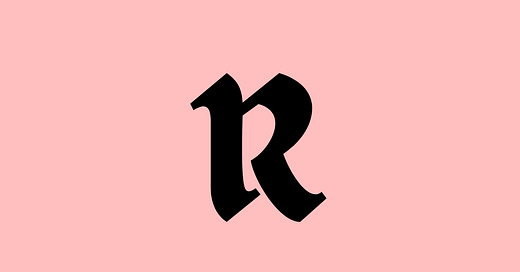A reminder that Quitted, my new podcast with Emily McDowell, drops at midnight E.T. on Wednesdays (so it’s available first thing Thursday). The last two weeks have been Elizabeth Gilbert talking about quitting social media and sex and love and drinking and musing that perhaps the point of our entire life boils down to one moment where we hold someone’s ladder. Tomorrow, Em and I clumsily make our way through an episode called The thing about endings.
Next week I’ll be sending my first podcast for this newsletter, an interview I did with Dr. Carl Fisher, author of The Urge, instead of this roundup so I can take a few days off while traveling. (The podcast is a bit of a test to see if you like it/if anyone even listens to it. I loved recording it. Carl is a sweet, smart human; his book is truly masterful, and we had so much fun talking about addiction, as one does.)
Onto the goods.



